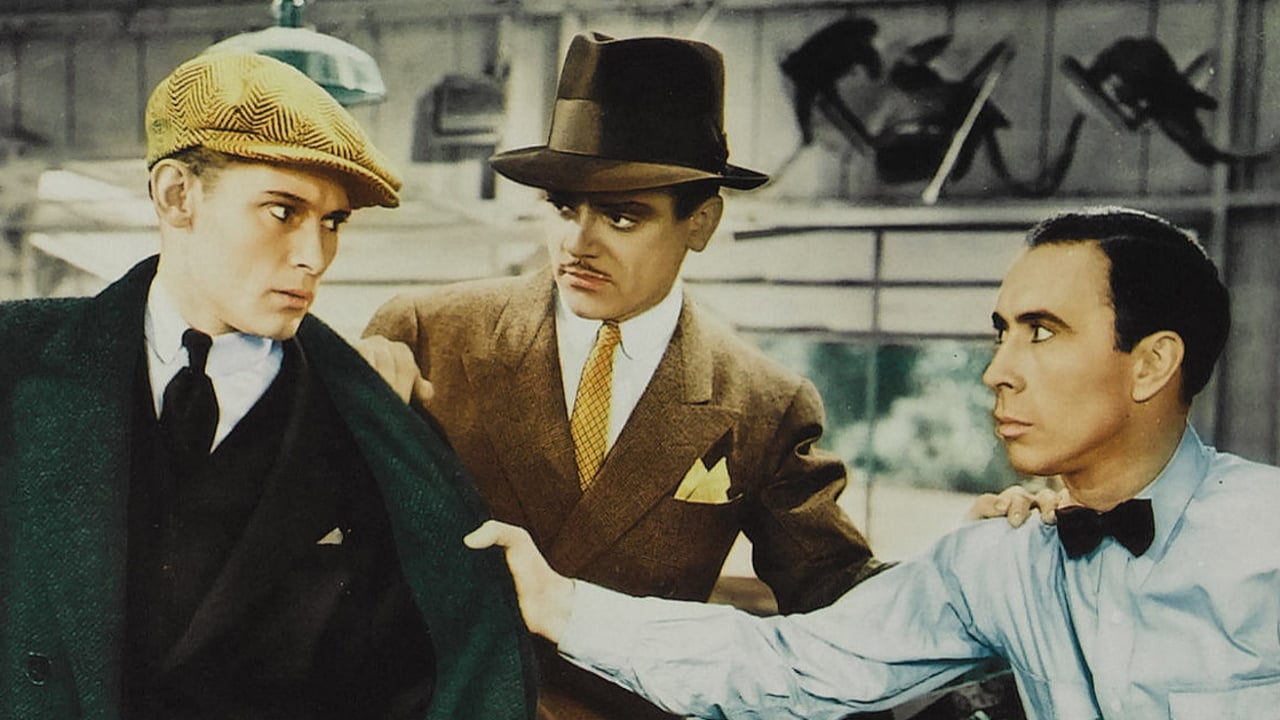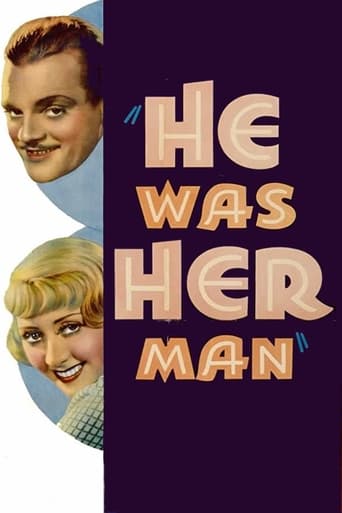CheerupSilver
Very Cool!!!
Tedfoldol
everything you have heard about this movie is true.
Asad Almond
A clunky actioner with a handful of cool moments.
classicsoncall
Man, don't you just love the dialog in these early pre-Code films? In 1931's "Blonde Crazy", right after Jimmy Cagney's character sets up Joan Blondell with a job as a hotel linen girl, he offers to bring up some 'hooch' and sandwiches! In an opening scene here, Flicker Hayes (Cagney) rats out a couple of his former hoodlum cronies to the police, stating that the warehouse job about to be pulled has a 'safe full of junk and nose candy'! Wow! Nose candy! Apparently the cop on the other end of the line knew what he was talking about, he didn't even bat an eye.This was the third film in which Cagney and Blondell had a relationship of sorts. The other two were "Sinners Holiday" (1930) and "Blonde Crazy" (1931). Actually, Blondell's former prostitute character Rose Lawrence is somewhat of a conflicted woman here, juggling her romantic possibilities between Jerry Allen (Flicker's assumed name in San Francisco) and Portugese fisherman Nick Gardell. For Victor Jory, the role of Nick appeared to be an uncomfortable one and generally outside his comfort zone. Or maybe I'm just used to seeing him as a tough guy or villain most of the time. The romantic type just doesn't seem to fit him.So when Jerry ditches Rose and she can't make her mind up about telling Nick she can't/won't marry him, it leaves all kinds of question marks in the mind of the viewer. I thought that was a pretty good speech she made Jerry when she said she was still pulling for him after he dumped her, making him feel every bit the heel he was. Which wasn't a stretch really, considering the fact that one of the hoods he set up got the chair after he took their fifteen large for the botched warehouse heist.What goes around comes around I guess when bad guys have a falling out. It would seem on the surface the picture had a happy ending with Rose and Nick finally hooking up. In just about any other picture you might have heard an off screen gunshot to know that Flicker's fate was sealed; here you had to read between the lines a little bit to realize he would never make it to the wedding reception.
MartinHafer
This film slips under the wire--being released just two weeks before the toughened Production Code was enacted. Because of this, one plot element is in the film that probably would not have been allowed just a few days later--Joan Blondell's character having been a prostitute. While the word 'prostitute' is never used, it was heavily implied--like all Pre-Code films.The film begins with James Cagney double-crossing a couple of crooks who had done him wrong. One of the thugs is caught by the cops and sent to death row, but the other is still at-large and wants to pay Cagney back for his infamy. Cagney is no dummy, so he leaves town and hides out in San Francisco. However, he's soon discovered and beats it with Joan Blondell to a tiny fishing village to hide. It seems that Blondell's fiancé is waiting for her there and Cagney is able to talk her into keeping his real identity secret.The fiancé, his mother and the town embrace Cagney and make him feel very welcome. However, two problems develop. First, Blondell who is intended for Victory Jory instead is falling for Cagney. Second, eventually the baddies learn where Cagney is and come to get him--and pose a threat to anyone in the town who gets in their way. I won't tell you how all this works itself out, but it certainly WON'T be the way you'd expect for a Cagney-Blondell film! Because it kept me guessing, was very entertaining and was a nice change of pace, I enjoyed it very much.
Ron Oliver
A young San Francisco woman, who's lived rough, is torn between the Portuguese fisherman she admires & the petty criminal she adores.HE WAS HER MAN is a particularly good example of the sort of crime drama which Warner Bros. did so well in the early 1930's. Intelligent romantic dialogue and gentle humor, in addition to some very fine performances, are all ingredients which make this film a solid success - even though it is nearly forgotten now. This picture was produced just before the implementation of the Production Code and the climax, while completely appropriate, will surprise some viewers.Jimmy Cagney is entirely irrepressible, strutting through each scene like a banty rooster, shouting attention to himself without ever having to raise his voice. As a fellow on the lam from vicious mobsters who want him dead, Cagney plays a character not in control of his own circumstances - a rarity for him, which makes him at once more vulnerable and more human. Joan Blondell nicely underplays her part as the tough luck lady he befriends, avoiding any of the sass & sizzle from her comedic films which would be out of place here.At the other end of the spectrum from the grim roles with which he would become associated, Victor Jory is excellent as the quiet, decent fisherman who deeply loves Blondell. His performance is one of the major assets of the film.Bradley Page, Russell Hopton, Harold Huber & Ralf Harolde play various Manhattan crooks & killers, with Frank Craven especially good as a genial, albeit sinister, shadow. Solid support is given by Sarah Padden as Jory's exuberant old-world mother & John Qualen as the local delivery man.Outdoor location shooting took place around Monterey, California. While the film's setting, the seaside village of Santa Avila, is completely fictional, the Monterey Bay area has long enjoyed a strong Portuguese contingent as part of its fishing industry.
jaykay-10
Although James Cagney once again appears as a disreputable underworld figure, there is in this portrayal no strutting, twitching, snapping, or pushing people around. As a double-crosser on the run from his former cohorts, he maintains an extremely low profile - yet the menace he represents surfaces in a smirk here, a sly smile there, a barely poised but ever watchful presence with the potential for violence - perhaps the quietest Cagney criminal you will ever see. Joan Blondell also plays a familiar type, the down-on-her-luck girl who will trade her charms for money, but here, too, the approach to the part is much more subdued than what we find in her wisecracking gold-digger roles. World-weary, somber, reflective, resigned: there is no contradiction in her projecting a streetwise yet vulnerable woman who, though still young, has seen too much of life. If the two stars don't exactly set off sparks (as each did playing opposite others), they give solid, honest performances - as does Victor Jory in a key supporting role. This film does not deserve to be forgotten.

